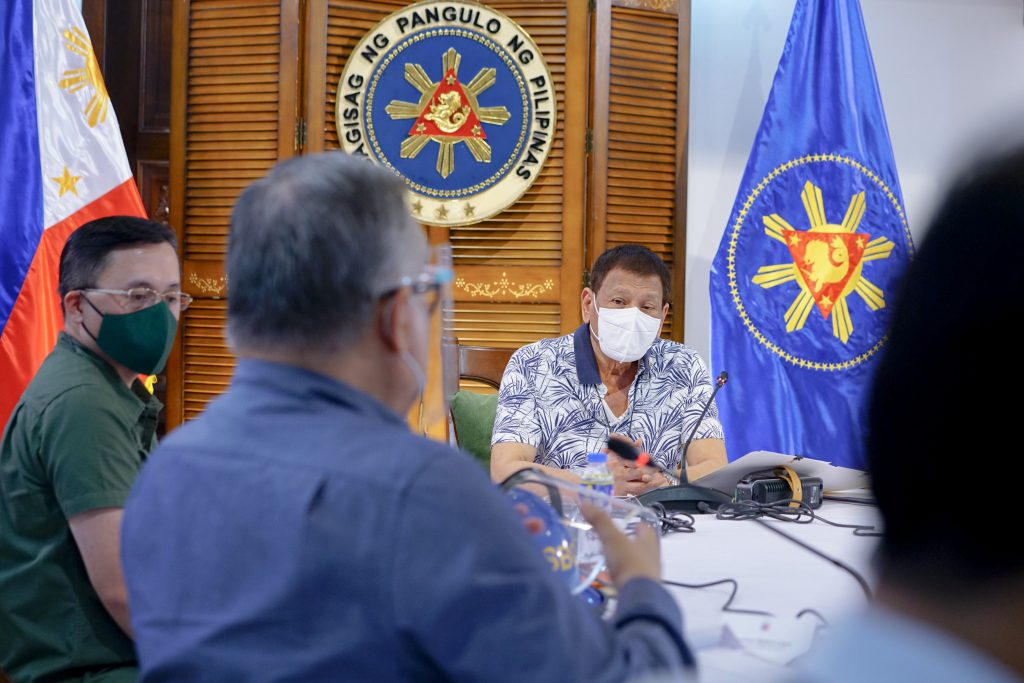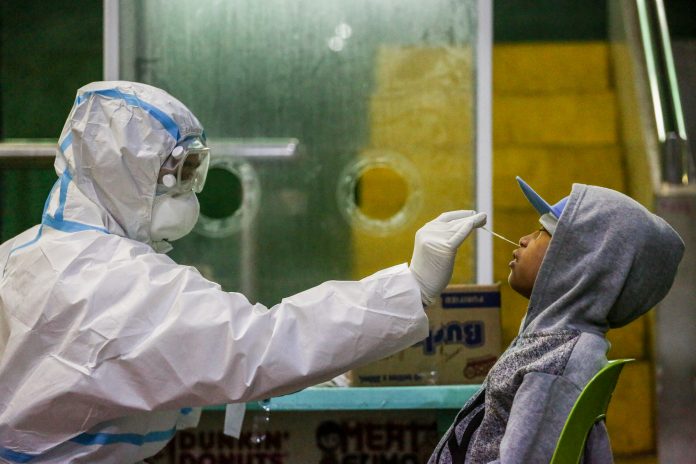“Worrisome” is how Bishop Broderick Pabillo, apostolic administrator of the Archdiocese of Manila, has described the Philippines having most number of Covid-19 cases in the Southeast Asian region, with a one-day total almost 7,000 new cases raising the over-all total to 136,000 infected patients as of August 10—and counting.
The dubious distinction of having the most coronavirus cases in the region even after nearly five months of lockdowns—the longest in the entire world and among the most draconian—has been accompanied by the 16.5 percent decline in the Gross Domestic Product (GDP) in the second quarter of this year, considered the worst recession in the country in 40 years.
We certainly did not expect the decline in economic performance due to the measures aimed at arresting the spread of the Covid-19 pandemic to reach this magnitude. But that’s the stark reality at this point, and that’s what’s really worrisome, if not downright disturbing and gut-wrenching.
The government has been very busy lately parrying allegations that it has mismanaged the battle against the pandemic, claiming that the dismal Q2 economic figures cannot be attributed to government alone but also to the utter lack of discipline among Filipinos.
But what’s the real story?
To understand what’s been going on, it is important to review what the government has done—and failed to do—since the public health crisis began.
To deal with the Covid-19 pandemic, the Duterte administration created an Inter-Agency Task Force for Emerging Infectious Diseases (IATF-EID) as the policy-making mechanism. It is composed of the Secretary of the Department of Health Francisco Duque III as chairman and the heads of 11 other line departments as members. There are three ex-generals in that cluster, the rest are supposed to be experts in their respective fields.
The implementing body of the IATF is the National Task Force Covid-19 headed by Defense Secretary Delfin Lorenzana as chairman and Interior Secretary Eduardo Año as his deputy, with the support of the armed forces and the Philippine National Police. This is a virtual military junta that presides over the government’s war against the unseen enemy.
The IATF oversees the implementation of the National Action Plan or NAP to reinforce the efforts of the Department of Health in containing Covid-19. The NAP is supposed to slow down the spread of Covid-19 through effective and efficient implementation and decentralization of the system of managing the Covid-19 situation.
While the IATF-EID was created in early January when the first case of Covid-19 was recorded, the ad hoc body moved only in March, when the number of local transmission of Covid-19 was already starting to increase, and recommended the imposition of a lockdown initially in Metro Manila and later on the whole of Luzon.
The two-month delay in the response, it now appears, was a big mistake, as it allowed the coronavirus to spread with health authorities unprepared to do adequate mass testing, contact tracing and treatment of Covid-19 cases.
Moreover, while the IATF membership included those responsible for various sectors of the economy, such as agriculture, labor, trade and industry, tourism and transportation, it seems that they failed to adequately defend the interests of the sectors they were supposed to represent. They appear to have readily acceded to the imposition of harsh measures, such as the ban on all public transportation, closure of all tourism-oriented facilities and almost all but essential businesses during lockdowns.

The inevitable result: the current economic slump, the closure of many micro, small and medium enterprises, and joblessness all around that all contributed to the worst economic recession in four decades.
As we see it, the so-called “hammer and dance” strategy under the National Action Plan unduly emphasized the “hammer” aspect, such as the deployment of heavily armed Special Action Forces to communities to compel unthinking obedience to health protocols, such as wearing of face masks and keeping social distancing, to the detriment of the “dance” aspect, which called for the gradual opening up of certain economic sectors according to changing circumstances.
Compounding this was the inability of health authorities, already burdened by a minuscule budget, understaffing and lack of adequate facilities and equipment, to cope with the rising incidence of Covid-19 cases throughout the country.
Calls from various sectors for Duterte to sack Health Secretary Francisco Duque III for gross inefficiency, criminal negligence and lack of leadership amid a grave public health emergency, went unheeded by Malacañang despite the growing number of medical frontliners getting infected and even succumbing to the disease.
The preponderance of the heavy-handed “hammer” response to the Covid-19 pandemic, and missteps in the “dance” component, we think, have resulted in severe economic dislocation from which it would be very difficult to recover in the months ahead with the coronavirus still very much around—and a cure still way off in the horizon.
The way we see it, we have a situation where the left hand does not seem to know what the right is doing. It looks like the generals both retired and in the active service are running the show and the competent epidemiologists as well as the economists have been conveniently shunted to the sidelines, with the Malacañang occupant not doing anything—or perhaps because he himself is too Fentanyl-addled—to know exactly what to do to untangle the Gordian knot that we have now.
The “hammer and dance” strategy should be carefully reviewed by the national government if we hope to prevail over this health and economic crisis and help the country get back on its feet.
Ernesto M. Hilario writes on political and social justice issues for various publications in the Philippines. The views and opinions expressed in this article are those of the author and do not necessarily reflect the official editorial position of LiCAS.news.









